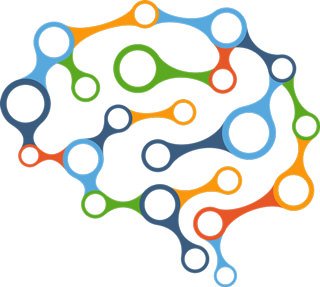The Believer in Us
In our effort to make sense of what is happening, we invent beliefs to try to fill in unanswered questions. This provides us with a sense of control about what is happening. Our default is to believe in the supernatural, in the superstitious fantasies of our imagination.

Source
We believe in ideas of controlling the future such as crossing our fingers or knocking on wood three times. The vast majority of people are still religious, which presupposes a belief in one or more supernatural entities. Yet despite a long-standing tradition of religious belief, it is estimated that there are currently 1/2 billion people around the world that are nonreligious.
If you don't believe in a supernatural deity, does that mean you're not religious?
Cognitive Studies
Despite people's attempts to remove beliefs, such as religious beliefs, they still end up engaging in beliefs. If you scratch the surface of many "nonbelievers" you'll see that many of them hold superstitious or quasi-religious beliefs. But that's not to say that everyone who is characterizing themselves as atheists is engaging in the same level of beliefs as everyone else who is atheist or not.
In our evolutionary development, we have cognitive tendencies that are useful for survival but also make us receptive to religious beliefs. Many of our capacities of consciousness operate in an intuitive, involuntary, nonreflective, axiomatic and automatic way for us to receive information and construct ideas about the world. Much of this is formulated into our worldview and self-view.
Theory of Mind
The theory of mind, which has been demonstrated to apply to nonhuman animals, enables us to think and intuit about other people's states of mind, and why they do things. This is useful for survival as a social species. We project ourselves into other people because they are like us and they operate, function and behave similarly to us. We can recognize similarities and differences among each other as human animals, as well as among each other as animals within the animal kingdom.
Projection
The problem with this capacity to put ourselves into someone else's perspective through the theory of mind, or to empathize with others, is that we can project ourselves into things that don't even exist. Whereas animals do demonstrate consciousness and faculties and functionalities of consciousness that human animals also possess, we tend to fantasize, imagine and invent beliefs where we also project ourselves outward as disembodied minds or consciousnesses, things with their own will and their own mental states.
This is how the belief in a thinking, feeling and acting being called "God" was fabricated by human consciousness. It does not exist anywhere to see it existing. We created this idea as an attempt to make sense of things and to find a way to control our fates and futures.
Dualism
We also like to believe in a literal dualism of the separation between the mind/consciousness and the body, as if that is a reality despite it not being demonstrated in reality. The only demonstration of mind or consciousness existing is where there is a body for it to emerge from.
In addition to anthropomorphizing, projecting, personifying, externalizing, reifying and deifying aspects of ourselves as a literal being somewhere out there, we justify the need to invent and believe our fantasies because we have a deep tendency to search for meaning and purpose in everything even if there is none. So we invent, create, imagine, fantasize and fabricate ideas in our desperate attempts to provide an answer that will give us a meaning or purpose as to why something exists or is happening.
Patterns
We imagine patterns and fabricate connections as a way to create an ungrounded superstructure of belief in fantasy ideas that provide us with some illusory security of thinking we have answers that are true, of thinking we are grounded in reality and are standing on solid ground when we're not. Instead, we're free-floating in a fantasy superstructure of beliefs based on speculation and imagination. So people end up believing in ghosts, spiritual healing, reincarnation, telepathically, astrology, lucky numbers and many other unverifiable claims about reality because they are looking for an answer that has meaning and value in their lives.
Change
Overriding these inbuilt cognitive biases and thought patterns requires time, energy and effort to deliberately self-correct ourselves and learn to overcome our deficiencies. If we want to, we can choose to align our perception of reality with the actual reality that is there. We don't need to accept the invented fantasy beliefs in order to attempt to have an answer to something that we currently can't answer.
Truth can take time. People are very uncomfortable with uncertainty, the darkness of this void of the unknown creates a gap in their comprehension. This state of insecurity, discomfort and confusion results in fear. This fear drives us to invent and fabricate answers in order to fill the gaps in our comprehension.
Willpower can overcome these cognitive deficits, but it all depends on our own willpower and correcting ourselves. Those who go on a diet often failed to maintain consistency because of their lack of willpower.
Justifying Fantasy
Many of us have a tendency to try to explain problems or setbacks in our lives as part of a "journey", or some imagined "karma", that we somehow "deserve" something bad or something good happening to us as if the universe is listening to our special snowflake requests and rewarding us or punishing us based on our actions. Also think of the people who want to explain what happens to them as part of fate, destiny, or some fortune from a crystal ball that someone told them about. Things happen. Some things are because we engage in certain actions that produce effects and affect us or others. And some things that affect us or others are out of our control.
Just think of all the people who want to imagine some mystical synchronicity when all that word means is exactly what coincidence means, and that is of two events happening at same time. If I go to the grocery store and you go to the grocery store, and it happens at the same time, then we coincide, and that is synchronous. These are coincidences and synchronicities, but there is nothing supernatural, mystical or magical about it.
The degree to which we fall victim to supernatural instincts, intuitions and nonreflective thinking varies among us all. The tendency for belief is strong in human consciousness. Human beings are not by default 100% reasoning based in reality. We have the capacity for rationality and irrationality. It depends on each one of us to determine how capable we are or not in understanding ourselves, in understanding how consciousness functions and other aspects of ourselves.
Learning about logic, logical fallacies and cognitive biases is extremely important in order to engage in the willful, effortful deliberate attempt to correct ourselves and become more right, to align and harmonize our perception with the actual reality that is.
Seek truth. Learn. Evolve consciousness.
Thank you for your time and attention. Peace.
If you appreciate and value the content, please consider: Upvoting, Sharing or Reblogging below.
 me for more content to come!
me for more content to come!
My goal is to share knowledge, truth and moral understanding in order to help change the world for the better. If you appreciate and value what I do, please consider supporting me as a Steem Witness by voting for me at the bottom of the Witness page.





I think atheist and theists are the same. They both portend to KNOW, as an absolute, one thing or another. It is en-grained in the human psyche to believe in something greater. Evidenced by Atheists still participating in some form of belief. As long as they don't make the STATE their god, I got no problem w/Atheists, although am not particularly religious myself either.
Atheism is only about one belief, "God", a deity. Atheism has nothing to do with believing in the legitimacy of authority, despite some doing so. Whereas one is not demonstrable at all, the other is an authority that is present and demonstrably exists, despite it not being legitimate and being given power through a belief in order for it to keep existing. There is a big difference, despite both involving belief.
There might be a demonstrable difference but once again, only what one can observe, suggests most atheists still have an absolute respect for man-made authority. While having only (mostly bitter) contempt for those who worship any Christian deity. I'm only pulling experience, as a former Atheist, with those I knew and many more I've met in my lifetime. At their cores, despite any textbook definition of an Atheist, still lies belief. This is my point. Few on either side of the argument refer to Wikipedia to execute their "beliefs".
Very sound advice. I dont think that religion and spirituality are the same. The human mind always seeks answers and it has invented "god" to answer most unknowns. Religion was a way for the intellectual class to control power by having a facade of rulers. Religion is more politically driven today by those in charge of it, but to the average person who believes in religion, it gives a code to live by, that usually tends to be the word of god.
Believing in a supernatural power is spirituality and allows one the freedom of having an individual moral code and also giving the freedom to decide right and wrong.
Aethism, well till humans can figure out a way to travel to the fourth dimension will always stay validated. People believed the world is flat till it waa proven otherwise.
I agree with you. Humans should develop the ability to distinguish superstition from coincidence. We all have a belief system that acts gives us meaning in life, specially during the toughest of times. If logic is always used, it will help in finding a solution, than merely waiting for fate to act or a supernatural power to save us.
Frankly, to each his own, but whatever one wants to believe, as long as it is well reasoned and well thought out, i think its ok.
Some of your articles are really good, this being one.
Some eh? Thanks ;) The thing with belief, is that it motivates behavior for people to do things, to act, to create a way of life, to create the world as it is. Belief is a big problem for why the world is the way it is. Not all belies are doing us good... :P
Haha, true.
And to clarify, all are good, some very good :)
In my opinion and as per my analysis, belief and superstition have very close relationship means, all these develops after some events and sometimes mind accumulate these events and it match with the actions which we've done, then mind remembers that action and that result, then this becomes an belief that it will happen whenever we perform those actions, and actually performing those actions in the hope of same result is superstition for example, many people wear right socks first and left next and some do vice versa because they think that it would be good and it will give goodness for the whole day, mind always work mysteriously and the real capability of mind is immeasurable. Thanks for sharing this post with us and wishing you an great day. Stay blessed. 🙂
Yeah, believing in fantasy as if it creates better things in our lives, so we believe we are in control of more than we are :P
Yes. It's better to keep the extraordinary thoughts instead of depressive. Stay blessed. 🙂
Patterns, this is the most cognitive bias most believers fall in. Some cook chapatis and look at it and make patterns that verify their beliefs. Sometimes I also look in the sky and find Ave Maria with her baby Jesus and different person can look at it and see different things. Otherwise your article is full of beautiful lessons and philosophy to digest carefully, they can help a lot someone who want to live a wise and independent life! Thank you @krnel
Patterns help us learn and see connection, but sometimes we make up connections or conclusions; )
Yeah that's true! Conclusions we make!⬇
It is true. Everyone somehow needs to believe in something. That is why there are so many cults and religions. I think that thanks to beliefs it is possible to regulate human behavior, if it were not for them, maybe we would not be the people we are today. Good topic.
We don't need to, we want to ;) They make us feel good ;) We wouldn't be doing what we do in large part if some beliefs were gone, and things might be better for it ;)
If a atheist believes in super powerful alien who are overwatching us. Does it make him religious?
It's a belief. Why is it a religion?
Religion is also a belief. Belief is someone all powerful.
Great article. Some athiests do still hold religious or superstitious views for whatever reason. There is a difference between atheist and agnostic though. A minor difference but still a difference.
An atheist is only about saying no "God" because it's not demonstrable that there is. Agnosticism is to recognize not knowing. You can be agnostic-atheist, in that you don't know for certain, but there is no evidence to conclude there is a "God".
Oh. That makes sense. I knew there was a difference but I wasn't sure exactly what it was.
Human mind is a great storyteller. You as well :).
Theory of mind in myself view maybe, its dot dot dot(.........)Thot, philosophy, supernatural, incident of spiritually, change, projection importance of protection from natural inbalance, and the patterns of psychology of human beings, less, great post, thanks @krnel.
Curated for #informationwar (by @wakeupnd)
Our purpose is to encourage posts discussing Information War, Propaganda, Disinformation and other false narratives. We currently have over 7,500 Steem Power and 20+ people following the curation trail to support our mission.
Join our discord and chat with 150+ fellow Informationwar Activists.
Ways you can help the @informationwar